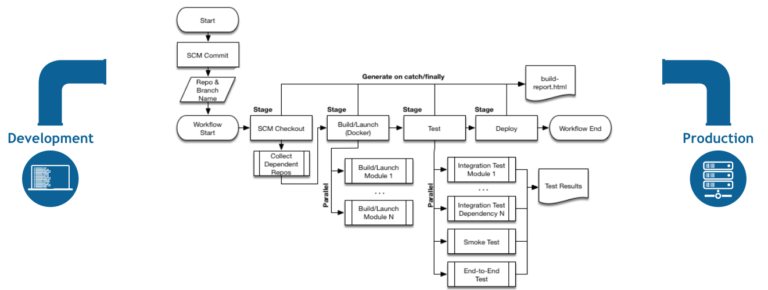What is Jenkins?
Jenkins is an open-source automation server that helps to automate the building, testing, and deployment of software. It provides a web interface for defining and scheduling jobs, as well as tools for monitoring and analyzing the results of those jobs.
Jenkins is often used for continuous integration and continuous delivery (CI/CD) in software development. It can be configured to automatically build and test code changes as soon as they are committed to a version control system. This allows developers to catch and fix errors early in the development process, improving the overall quality of the software. Jenkins can also be used to automate the deployment of code changes to various environments, such as test, staging, and production.
Some of the key features of Jenkins include:
- Support for a wide variety of plugins, which can be used to add functionality such as integration with version control systems and test frameworks.
- A web interface for managing and monitoring jobs.
- Support for distributed builds, allowing jobs to be run on multiple machines in parallel.
- Built-in support for testing and reporting on code changes.
- Support for integrating with other tools and services, such as slack, email, and other notifications.
Jenkins is commonly used in software development for automating repetitive tasks and streamlining the software development pipeline, it’s also widely adopted in many companies, organizations, and projects across various industries, including finance, healthcare, manufacturing, and retail.
